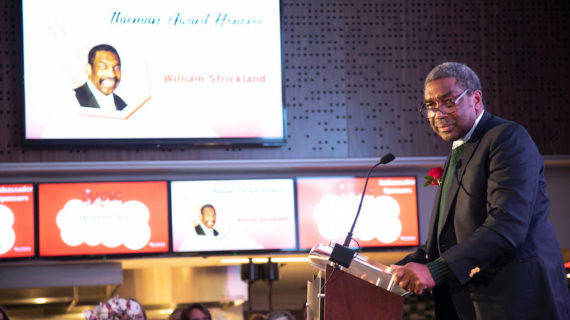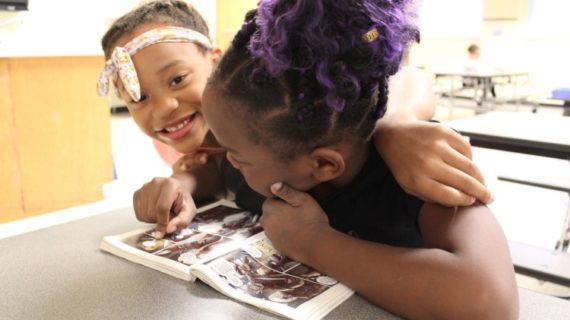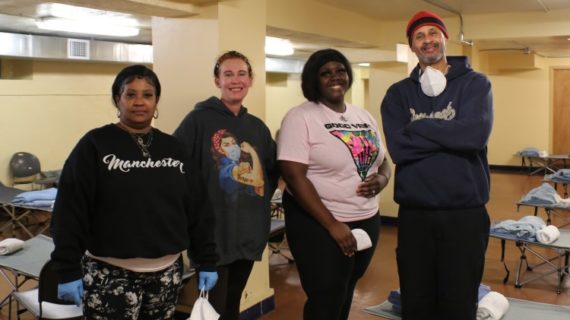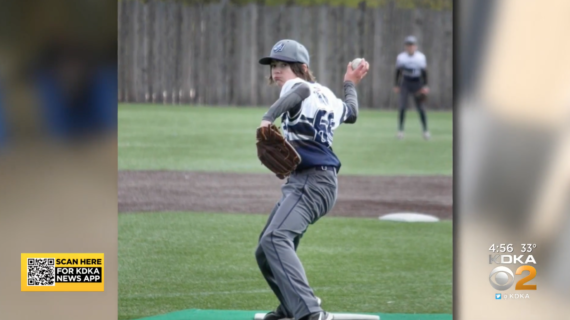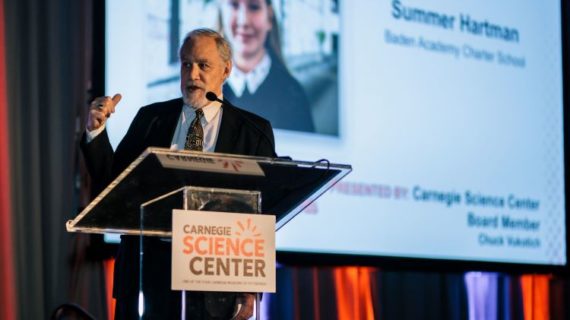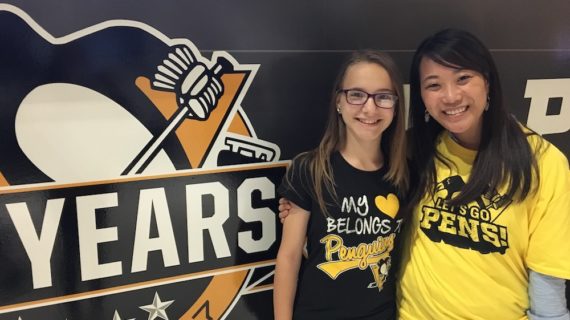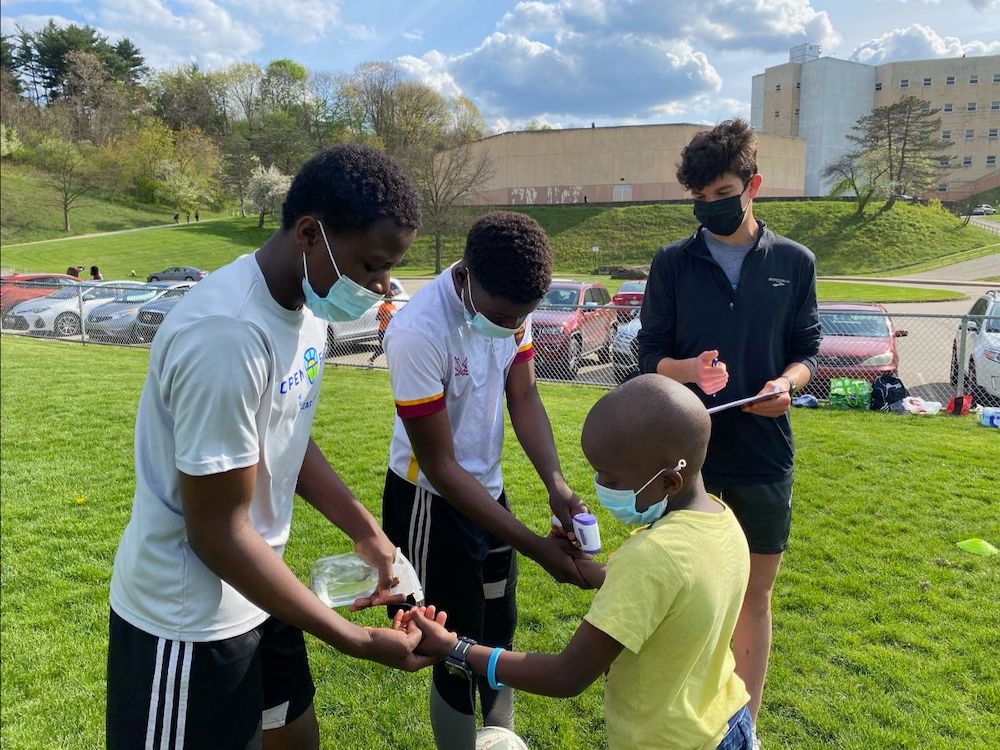
What’s mentoring in Pittsburgh really like? Check out our interview with Open Field mentor Ezra Dubowitz.
Photo above of Ezra Dubowitz mentoring soccer players through Open Field used by permission.
Maybe you’ve thought about volunteering to do some mentoring in Pittsburgh, but you’re not sure what exactly that would mean. Or maybe you’ve wanted to get your child involved in a mentoring program, but you’re not sure what that would look like.
As Kidsburgh puts a spotlight on mentoring this month with help from our guest editor Bill Strickland, we wanted to give you an up-close look at what mentoring in Pittsburgh is all about. So with help from our friends at the Mentoring Partnership, we’ve asked three people who mentor through different local organizations to tell us about their experiences. Here’s what they shared:
Mentor: Ezra Dubowitz
Organization: Open Field
Been mentoring since: 2018
What inspired you to start mentoring? “Soccer and social justice are among my top passions in life, and I have always been interested in finding a way to combine the two. I have known that sport has the ability to have great social impact, and when I discovered Open Field, I knew that I wanted to be involved. I initially began volunteering as part of a service project for my Bar Mitzvah in the summer of 2018, but I have continued my work with Open Field since then.”
What’s a typical day of mentoring like for you? Ezra is in high school, so his mentoring varies depending on the time of year. In the summer, he works with Open Field most Mondays and Wednesdays. For a few weeks of the summer, he works at a summer camp nearly every day. So he wakes up early to go to his own soccer training, then gets to the summer camp at Frick Park by 8:30 a.m. There, he works with different age groups of young people: “We would talk about common issues that youth had, express emotions, and run through a bunch of fun soccer activities,” he says. “As the summer went on, it was clear that the children at the camp, especially the younger ones, became extremely enthusiastic about coming to play soccer.”
By 1 p.m. most days, he then heads home for some personal time. By 4 p.m. on Mondays and Wednesdays, he gets ready for Open Field programming. By 5 p.m., he’s on the field with groups of kids for more soccer and conversation. “We would talk for a little bit about our day and how we were feeling, continuing to discuss this throughout the evening, and then move into some drills and games. The kids had a blast playing.” Then comes dinner around 7 p.m. — packaged meals eaten together with the kids on the field. It’s a long but fulfilling day.
Is it complicated to fit mentoring into your life? It can be challenging during the school year, Ezra says, “if you make the time and stay diligent to what needs to get done, mentoring is not that complicated to schedule.”
Mentors teach, but they also learn. What’s one thing you’ve learned from a mentee? “I have learned so much from the youth at Open Field. Many of them come from difficult lives and have very interesting background stories. A lot of the participating youth are refugees, and I always love learning about their stories with whatever they are comfortable talking about. One thing I have learned from a mentee is that being patient, open-minded, and caring is the best way to form bonds with the youth — and the most effective way to have an impact on them.”
Do you have any mentors? “I do not have any formal mentors, but a lot of people I look up to as role models have significant impacts on me. My parents, soccer coaches, teachers, and other mentors at Open Field all teach me new things every day and make me a better person.”
What is one thing about mentoring in Pittsburgh that has surprised you? Seeing kids become “progressively more excited to participate in programming as the summer went on,” he says. “At Open Field programming, the youth became more accustomed to the schedule … and were always excited to get started with the soccer part. It was clear that the mentoring had an impact on the kids, and the extent to which this was noticeable surprised me.”
Why do you think mentoring is important? “Mentoring is important because it has lasting impact on the youth and allows them to develop into more well-rounded people. The effect of mentoring on the youth is noticeable in that they become leaders. Their communication skills improve, and it is clear on their interactions with others that the youth are more confident, open-minded, and generally excited to share their knowledge with others.
What would you say to someone who is interested in volunteering to be a mentor but hasn’t tried it yet? Ezra suggests contacting the leaders of an organization that interests you. Ask how you could get involved and benefit the organization as a whole. Even if you’re busy, it may really be worth it to give mentoring a try. “Volunteering and mentoring are two of the most rewarding things an individual can take part in,” he says, “because the impact on youth that are being mentored is significant and noticeable.”
Want to learn more about mentoring in Pittsburgh? We’re happy to share this advice from longtime Pittsburgh mentor Bill Strickland, along with info on organizations that use sports for mentoring. And check out our Q&A’s with mentors Malissa Seman and Jack Mackin.
